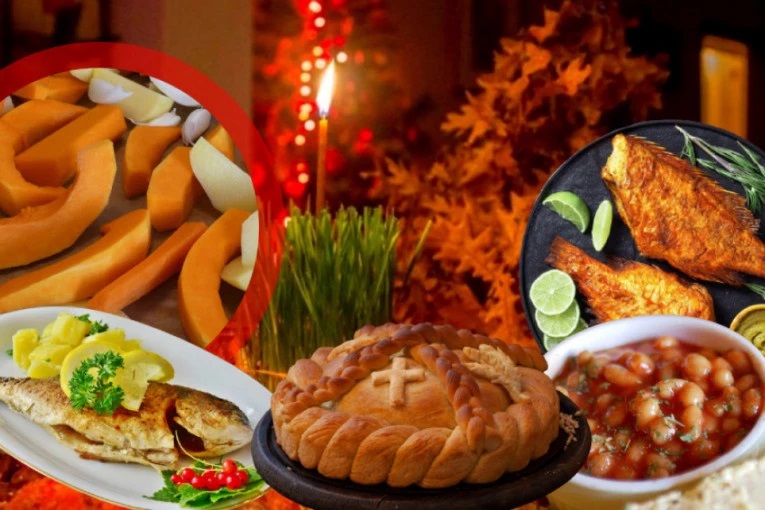Christmas Eve and Christmas - days of blessing, nobility and the happiest holiday

Christmas Eve is called the day before the birthday of Jesus Christ (Christmas), according to Christian tradition. Christmas Eve is celebrated one day before Christmas and the Christmas of Christ is announced with carol fires and small children caroling.
Christmas Eve represents a night of peace, joy and togetherness. This holiday is divided into two parts – the period from midnight to noon on January 6 is Christmas, and Christmas Eve is celebrated from noon to midnight.
Christmas Eve falls on January 6 every year, and Christmas falls on January 7. The essence of the holiday is in the joy of Christians before the great day - the birth of Christ. At the same time, this day also ends the Christmas fasts.
Christmas is the happiest holiday for Macedonians. The first day is always January 7 and is celebrated for three days. People greet each other with: "Christ is born!", And greet each other with: "He was really born!"
The Macedonian people celebrate Christmas with great attention and respect, which begins with Christmas Eve.
The day opposite Christmas is celebrated with a series of customs. Orthodox Christians will welcome the Christmas holidays with a traditional Christmas fasting meal, with wishes for a lot of health, happiness and prosperity in the coming year and this year, mostly in the circle of their loved ones.
Christmas twigs
Christmas branches are a symbol of happiness, love and light, with which Orthodox believers decorate their homes on Christmas Eve, on the eve of Christmas, the biggest Christian holiday.
Christmas-Christmas customs begin the night before the holiday, with the lighting of large carol fires, which burn until late at night, with song, dance, heated brandy and wine, as well as the inevitable pogacha.
In the early hours of the morning, the youngest carolers in the spirit of tradition sing their Christmas carols and will announce the birth of Jesus Christ. With traditional carol songs, small children from early in the morning go from door to door of Christian homes, an act that, according to church beliefs, foreshadows the imminent birth of Christ. Hardworking children receive chestnuts, candies, apples, oranges and symbolic money for their work and a sung song. The products that the carolers receive should be lean, because the Christmas fast is still going on.
Christmas dinner
In Macedonia, the family traditionally gathers for dinner on Christmas Eve. A rich table is prepared with exceptionally lean food, which symbolically should ensure a rich harvest of agricultural crops in the following year. The specific tradition for the Macedonian celebration of Christmas Eve is to knead a cow, pie or cake, in which a coin is placed.
In the evening when everyone sits down to dinner, the host, after crossing himself and blessing the table, breaks the cow into as many parts as there are members in the family, leaving another part for God and the house. Everyone present in their part looks for the coin in the bun and the one who finds it will be considered the luckiest in the coming year.
Christmas Eve is a religious holiday when, according to tradition, the family gathers for a lean, rich dinner. It is taken out of everything as an adet, but also for berichet, that the year will be rich.
According to beliefs and customs, a bread with a coin will be found on the rich Christmas feast, and whoever finds it is believed to be lucky and healthy throughout the year. For dinner on Christmas Eve, a lean dinner of several types of dishes is prepared.
Among the dishes, lean beans, cabbage or leek pie, lean sarmicki, fish, dates, dried figs, almonds, uncracked walnuts occupy the most honorable place (there is a belief that if a nut is not wormy when you crack it, you will have a good luck in the coming year ), southern fruits (tangerines, oranges), apples, chestnuts and baklava. There should also be a lighted candle decorated with a Christmas tree on the table.
It is customary after dinner not to open the fasting table, but to leave it together with the food until the morning, because there is a belief that Santa Claus will come through the night to feed himself.
The proverb "Before Christmas, after Christmas, be at home" is also associated with Christmas, which has a special meaning that during this great holiday everyone should be at home and celebrate this great Christian holiday with their family.


